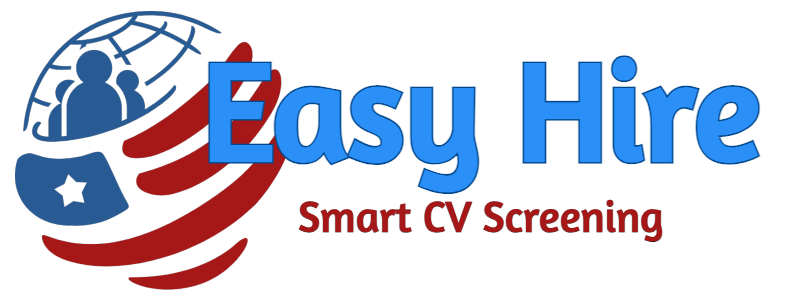💡The Advantages of AI Over Traditional Recruitment Methods

In today’s hyper-competitive hiring environment, companies no longer have the luxury to rely solely on outdated recruitment methods. The rise of artificial intelligence (AI) in recruitment has not only transformed how businesses search for talent but also how they engage and retain candidates. When comparing AI recruitment vs tradi_t_ional hiring, the difference is clear — AI brings speed, efficiency, and precision to a process historically bogged down by manual tasks and subjective judgments.
This article dives deep into the advantages of AI over traditional recruitment methods. From reducing unconscious bias and improving candidate match rates to substantial cost savings, let’s take a closer look at why AI-powered hiring is rapidly becoming the preferred strategy for modern HR departments.
Table of Contents
Why the Shift? Traditional Versus AI Recruitment Approaches
Traditional hiring has long been the norm — job ads on job boards, manual resume sorting, hours spent on interviews, and hiring decisions sometimes driven more by gut feeling than data. While this method has delivered results in the past, today’s high-volume, fast-paced job market exposes its inefficiencies in the AI recruitment vs traditional hiring debate.
Let’s briefly break down the challenges of traditional hiring methods:
- ⏳Manual resume screening may take days or even weeks
- ⚖️Risk of unconscious bias during screening and interviews
- 💰High costs from lengthy hiring processes and turnover
- 📉Limited insight into long-term candidate suitability
- 🗣️Delays in communication and poor candidate experience
AI recruitment technology, on the other hand, automates repetitive tasks, leverages data analysis to identify the best-fit candidates faster, and enables fairer, data-driven hiring decisions. Most importantly, it allows HR teams to shift their focus from administrative work to strategic, value-adding activities. When considering AI recruitment vs traditional hiring, the advantages of AI become increasingly apparent.

Key Advantages of AI Over Traditional Recruitment
🚀1. Lightning-Fast and Accurate Screening
Hiring managers often find themselves buried under resumes — and research by Glassdoor shows that the average corporate job opening attracts 250 resumes. Of those, only 4 to 6 make it to the interview. That’s a lot of manual sorting and guesswork in traditional hiring.
With AI recruitment, especially platforms like EasyHireApp, this part of the process becomes almost instantaneous. AI algorithms can parse resumes, extract important data points, and rank applicants in minutes.
Benefits of AI-powered screening:
- Reduces resume screening time by up to 70%
- Utilizes natural language processing (NLP) to understand context behind experience and skills
- Eliminates human fatigue and inconsistency in resume review
- Identifies high-potential candidates who may otherwise be overlooked in traditional hiring methods
For example, a mid-sized tech company using EasyHireApp reduced their time-to-screen from days to just two hours post-application. This not only accelerated the whole hiring timeline but ensured hiring managers spent their time only on top-tier applicants, a key win for AI recruitment.
🛡️2. Cross-Off Bias from Your Checklist
Unconscious bias is a big — and often invisible — hurdle in traditional hiring. Whether it’s gender, ethnicity, age, or even alma mater, these biases can creep in even when unintentional. This is a critical point in the AI recruitment vs traditional hiring discussion.
AI helps remove this from the equation. By focusing only on qualifications, experience, and measurable competencies, AI recruitment tools can provide a level playing field for every applicant.
Here’s how AI recruitment improves fairness:
- Uses anonymized screening — candidates are masked during evaluation
- Relies on structured data for decision-making, not personal impressions
- Supports diversity and inclusion goals more effectively using AI hiring techniques
- Offers consistent evaluation across all applicants
Take EasyHireApp, for instance. The platform uses AI to strip away personal identifiers like name and photo during the initial screening phase to ensure that selection is based solely on skill fit. In one case, a retail chain saw a 35% increase in their diversity hires after switching to AI recruitment.

🎯3. Data-Driven Candidate Matching (No More Gut Feelings)
The traditional method of comparing candidate resumes to job descriptions can be inconsistent at best. Often, recruiters rely on intuition, which—even with the most experienced teams—can lead to hires who don’t stick.
With AI recruitment tools, employers can use machine learning to develop a deep understanding of:
- What makes a great employee at their company
- Which skills correlate with on-the-job success
- Patterns in career paths that suggest growth potential
AI not only screens for required skills but also considers cultural fit, hidden competencies, career trajectory, and even how long a person is likely to stay with the company. This data-centric approach is a core advantage of AI recruitment vs traditional hiring.
Platforms like EasyHireApp integrate well with applicant tracking systems (ATS) and HR databases, learning from past successful hires to continually refine and improve matches. Companies using these tools have reported up to a 50% improvement in candidate-job alignment, directly impacting employee performance and retention.
💸4. Major Cost Savings (Without Cutting Corners)
Recruiting is expensive — between job ads, agency fees, time spent interviewing, and onboarding the wrong people, it adds up fast. Deloitte reports show that the average cost-per-hire in the U.S. is over $4,000. AI recruitment can significantly reduce these costs.
AI recruitment takes a big bite out of these operational costs by:
- Automating the initial stages of recruitment (screening, interview scheduling, communication)
- Reducing the number of hours recruiters spend on each hire
- Improving employee retention by hiring better-fit candidates sooner through efficient AI hiring
According to a Deloitte study, companies that integrate AI into their hiring workflows have seen as much as a 30% reduction in overall recruitment costs. And for many, that’s money that gets reinvested into improving the onboarding process, training new hires, or further optimizing hiring strategies.
Example: A national retail chain implemented EasyHireApp across its 120 locations and saw recruitment costs drop by $300,000 in the first year — all while improving hiring quality. This showcases the power of AI recruitment vs traditional hiring methods.
🌟5. Better Candidate Experience = Better Employer Brand
In today’s candidate-driven market, a poor experience can be costly. A LinkedIn report revealed that 60% of job seekers have abandoned a job application in part due to poor communication or unclear process—a common issue in traditional hiring.
Here’s where AI creates a superior experience:
- Chatbots provide immediate responses to basic candidate inquiries, 24/7
- Automated updates keep candidates informed throughout the process
- Personalized interactions give candidates a sense of attention and care
- Scheduling tools reduce back-and-forth for interview appointments, a hallmark of efficient AI recruitment
Candidates appreciate transparency, speed, and feedback. AI-powered platforms make it scalable and consistent — whether you’re hiring 10 people or 10,000.
Companies like Hilton have made huge progress here. By integrating AI recruitment tools, they’ve not only cut down the time to hire by days — they’ve improved their candidate satisfaction scores substantially. In fact, Hilton reported a 20% drop in employee turnover just one year after transitioning to an AI-driven hiring strategy.

📹6. Smarter Interview Processes
Remember the days of unstructured, lengthy, and subjective interviews inherent in traditional hiring methods? AI is revolutionizing this stage, too in the AI recruitment vs traditional hiring landscape.
AI-driven interview tools can now:
- Analyze video interviews to assess tone, body language, and enthusiasm
- Automatically score responses based on criteria set by hiring teams
- Flag potential concerns or highlights for recruiter review
Unilever has implemented tech like this globally and reduced their hiring time by 75%. They’ve transitioned from phone screening to AI-powered video interviews for initial rounds, enabling them to process thousands of applications quickly while maintaining consistency and fairness.
AI Recruitment in Action: Real-Life Case Studies
Let’s look at a few companies that have seen success with AI recruitment:
- Unilever: With over 1.8 million applicants globally each year, Unilever needed efficiency. They adopted AI tools to analyze online video interviews for thousands of entry-level hires. As a result, they significantly reduced both time-to-hire and interview burden on managers, improving the candidate experience and saving thousands of hours annually through AI hiring.
- Hilton: Deployed AI to refine the candidate matching process. Result? Over 20% improvement in retention and stronger alignment between roles and recruits, demonstrating the benefits of AI recruitment.
- IBM: Leveraged AI to predict which applicants were most likely to be successful based on past hiring data. Their advanced tools helped reduce hiring bias and streamline global hiring.
Actionable Tips for HR Professionals
Ready to shift from traditional to AI-powered recruitment? Here’s how to start:
- Start Small with a Pilot:
- Test AI tools like EasyHireApp on one department or location first.
- Measure success metrics like time-to-fill, quality-of-hire, and retention when comparing AI recruitment vs traditional hiring outcomes.
- Focus on Candidate-Centric Tools:
- Use AI chatbots and automated interview schedulers to improve communication.
- Keep the AI hiring process fast and transparent.
- Educate and Involve Your Team:
- Train HR teams on interpreting AI insights effectively.
- Encourage hiring managers to use data in decision-making.
- Benchmark and Optimize:
- Regularly track performance indicators.
- Adjust your AI criteria based on changing company needs.
AI Recruitment Comparison: Big Picture Overview
Let’s wrap this up with a side-by-side comparison of AI recruitment vs traditional hiring:
| Feature | Traditional Hiring | AI Recruitment |
|---|---|---|
| Resume Screening | Manual, time-consuming | Automated, data-driven 📄 |
| Bias Reduction | Susceptible to bias | Based on objective data only ⚖️ |
| Candidate Matching | Based on experience/intuition | Deep matching with multiple factors 🎯 |
| Time to Hire | Weeks to months ⏳ | Often reduced by 50–75% 🚀 |
| Recruitment Costs | High 💰 | 20–30% lower on average 💸 |
| Candidate Experience | Can be inconsistent | Personalized, faster response 🌟 |
| Interview Efficiency | Subjective, lengthy | Structured, AI-evaluated 📹 |
The Final Word: AI Is the Future of Hiring
When you conduct an AI recruitment comparison against traditional hiring methods, the benefits are hard to ignore. From streamlining the recruitment pipeline and reducing bias to saving costs and attracting better talent, AI recruitment is not just a trend — it’s a necessary evolution for modern businesses.
Companies that embrace AI now are not only setting themselves up for hiring success, they’re also aligning with the future of work itself. The ongoing developments in AI hiring technology promise even more sophisticated solutions.
Ready to see how AI can revolutionize your own recruitment? Try EasyHireApp today and join a growing number of forward-thinking businesses transforming the way they hire.
To learn more, check out our AI recruitment comparison page and explore how smarter hiring starts with the right tools.
➡️ Visit: AI vs Traditional Hiring to get started.
❓Frequently Asked Questions (FAQs)
1. What is AI recruitment?
AI recruitment uses artificial intelligence (AI) and machine learning to automate and optimize hiring tasks—such as resume screening, candidate matching, interview analysis, and communication—making the process faster, fairer, and more data-driven compared to traditional hiring methods.
2. How does AI reduce hiring bias?
AI removes unconscious bias in AI hiring by:
- Anonymizing candidate details (name, photo, gender, etc.) during initial screening.
- Using structured data (skills, experience, assessments) instead of subjective judgments.
- Applying consistent evaluation criteria for all applicants.
This is a key advantage when considering AI recruitment vs traditional hiring.
3. Is AI recruitment more expensive than traditional hiring?
No—AI recruitment typically reduces costs by:
- Cutting time spent on manual tasks (screening, scheduling).
- Lowering turnover by improving candidate-job fit.
- Reducing reliance on expensive job boards or agencies.
Companies report 20–30% cost savings on average with AI hiring solutions.
4. Will AI replace human recruiters?
No. AI enhances recruiters’ work by:
- Handling repetitive tasks (e.g., resume sorting).
- Freeing up HR teams for strategic decisions and candidate engagement.
- Providing data-driven insights to improve hiring quality.
AI recruitment tools are designed to assist, not replace.
5. How accurate is AI in matching candidates to jobs?
AI-powered tools like EasyHireApp analyze multiple factors (skills, cultural fit, career trajectory) and learn from past successful hires. Companies report up to 50% better job-candidate alignment with AI recruitment compared to traditional methods.
6. Can small businesses use AI recruitment?
Yes! Many AI tools (including EasyHireApp) are scalable—ideal for startups, SMBs, and enterprises alike. Starting with a pilot program is a cost-effective way to test AI hiring.
7. Does AI recruitment improve candidate experience?
Absolutely. AI recruitment enhances candidate experience by:
- Providing instant responses via chatbots.
- Sending automated updates on application status.
- Reducing delays with faster screening and scheduling.
This is a significant improvement over often slow traditional hiring processes.
8. What industries benefit most from AI recruitment?
AI hiring tools are versatile but especially useful for:
- High-volume hiring (retail, hospitality, healthcare).
- Tech and engineering roles (skill-based matching).
- Companies prioritizing diversity and retention.
9. How do I start implementing AI recruitment?
To implement AI recruitment:
- Pilot a tool (e.g., EasyHireApp) in one department.
- Train HR teams on interpreting AI insights.
- Track metrics like time-to-hire and retention rates to see the benefits of AI recruitment vs traditional hiring.
10. Where can I learn more?
Explore our in-depth AI vs. Traditional Hiring guide here:
➡️ AI Recruitment Comparison
Ready to transform your hiring process? Try EasyHireApp today and join the future of recruitment! 🚀
